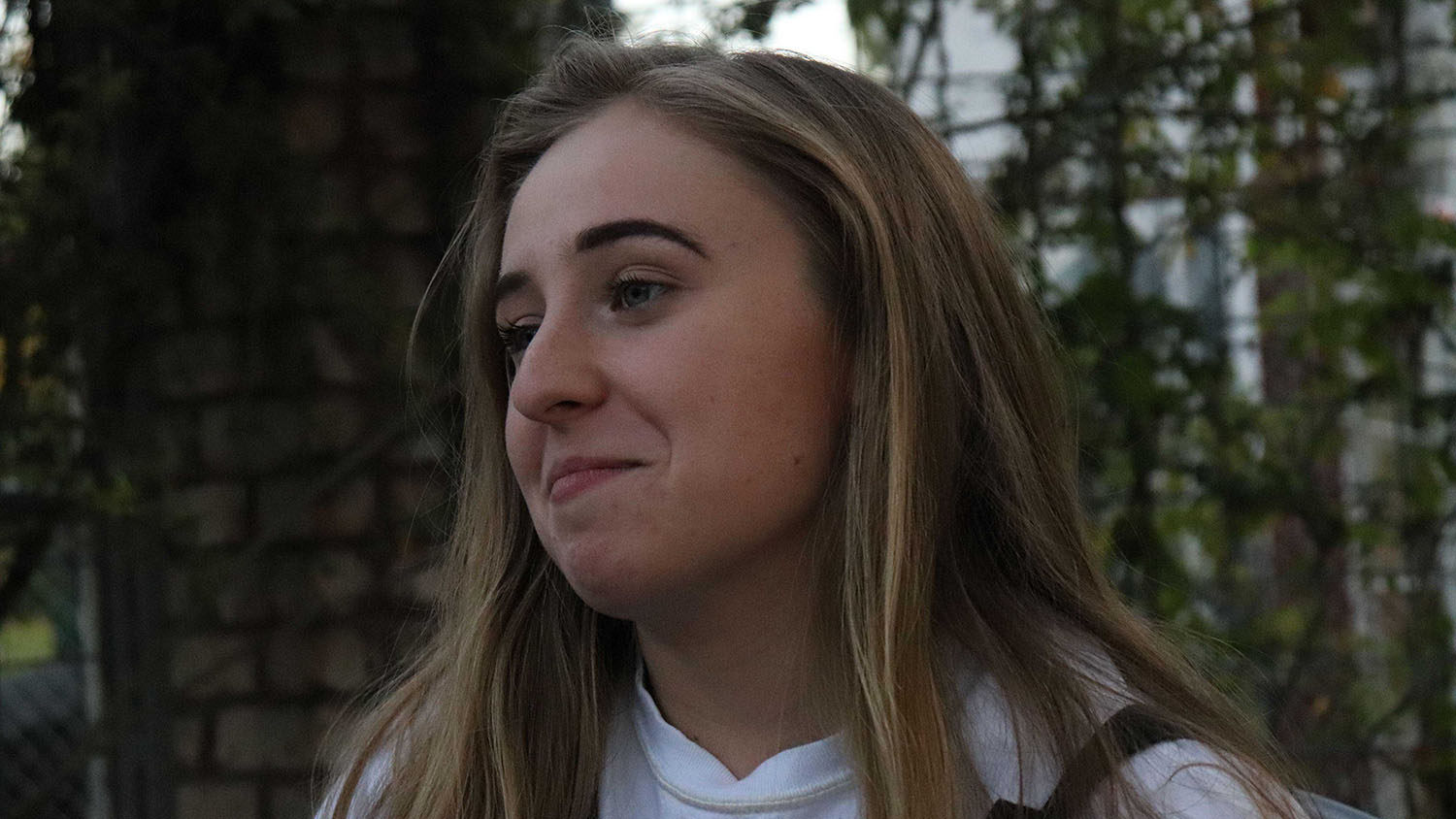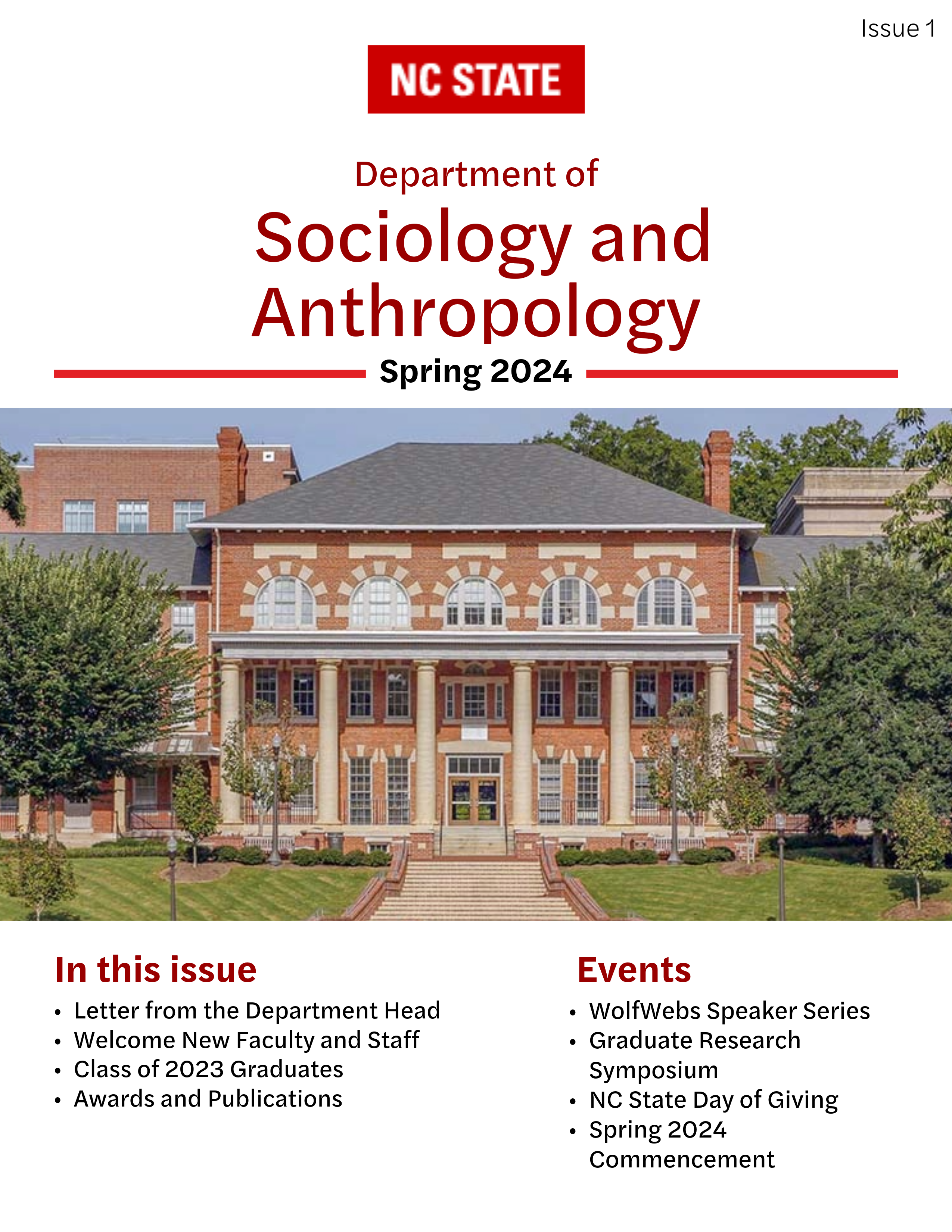Making a Difference: Sociology Internship with NCPIRG

This post was written by Carly Richardson, a junior studying sociology and political science and a Department of Sociology and Anthropology student ambassador.
The North Carolina Public Interest Research Group (NCPIRG) is a nonpartisan, non-profit organization meant to develop student leaders by means of grassroots organizing on issues that matter most to them. This semester, I am continuing my work with NCPIRG as an intern and club president for NC State’s chapter. Last semester our chapter focused on the New Voters Project- a campaign designed to help young voters get registered to vote ahead of the 2020 election. Now that election season is over, we have been focusing on a new campaign: food insecurity and housing instability on NC State’s campus and in the broader Raleigh community.
So far, one of our semester highlights has been hosting a virtual speaker series featuring prominent members of our community who have been doing work to address hunger and homelessness. Our speakers included NC State’s own Dr. Mary Haskett, co-chair of the NC State Food and Housing Steering Committee; Sarah Wright, co-chair of the Pack Essentials Steering Committee; Maggie Kane, founder and executive director of downtown Raleigh’s pay what you can café A Place at the Table, as well as student leadership from Feed the Pack. Following each presentation, participants were able to ask questions and begin important conversations regarding food and housing.
From the series, we were able to better understand the nuances of these issues and how to address them as well as spread awareness of the resources already available. Now, we are continuing to work with some of our speakers as well as other campus partners to form an action plan for what comes next.
In the meantime, we have added an environmental component to our campaign in the form of making bottle bricks. A bottle brick is a plastic soda bottle stuffed so tightly with other plastic waste that it becomes like a brick. Completed bricks can be donated and used to build things like community gardens, park benches, and even buildings. Creating a bottle brick is a great way to become more aware of your own plastic usage, eliminate waste, and make something that can be reused. Our chapter plans to host events on how to make a bottle brick, what they can be used for, and to produce a large number of bricks that we can all donate at the end of the semester.
The Department of Sociology and Anthropology has particular relevance to our campaign this semester as it deals directly with the social issues discussed in the classroom, or over Zoom, and puts faces to those experiences. To be able to use the education given to me by NC State and further it in a way that gives back to the community is the best part of working with NCPIRG.
*Included below is a link to new findings from research conducted by Dr. Haskett and John Dorris on NC State student food and housing insecurity in the context of the COVID-19 pandemic to better indicate our community need: https://drive.google.com/file/d/1UoDt6y6SNvktrzcyNBveF1XeVgN0_Am7/view


